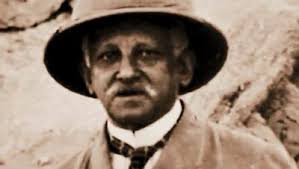Borchardt, Ludwig
Ludwig Borchardt (1863-1938) was a German Egyptologist who was the discoverer of the famous bust of Nefertiti in 1912 at Amarna. He lived and worked in Egypt for a number of years until he retired from the German Institute for Ancient Egyptian Archaeology in Cairo.
discoverer of the famous bust of Nefertiti in 1912 at Amarna. He lived and worked in Egypt for a number of years until he retired from the German Institute for Ancient Egyptian Archaeology in Cairo.
>In recent years there have been claims that the bust was a fake(c).<
In the mid-1920s he became interested in the search for Atlantis. At a conference in Paris in 1926 he suggested Chott el-Jerid as the most likely location for Plato’s lost city, which was inundated around 1250 BC.
The source for the above reference to Atlantis(a) seems to be incorrect and may be the result of confusion with Paul Borchardt. However, the same details are quoted on another site(b), although both may have used a common source
(a) https://dictionaryofarthistorians.org/borchardtl.htm (offline Jan. 2017) See Archive 2888
(b) https://www.encyclopedia.com/religion/encyclopedias-almanacs-transcripts-and-maps/borchardt-ludwig
(c) Is the Bust of Nefertiti Fake? | DailyArtMagazine | Art History Stories *
